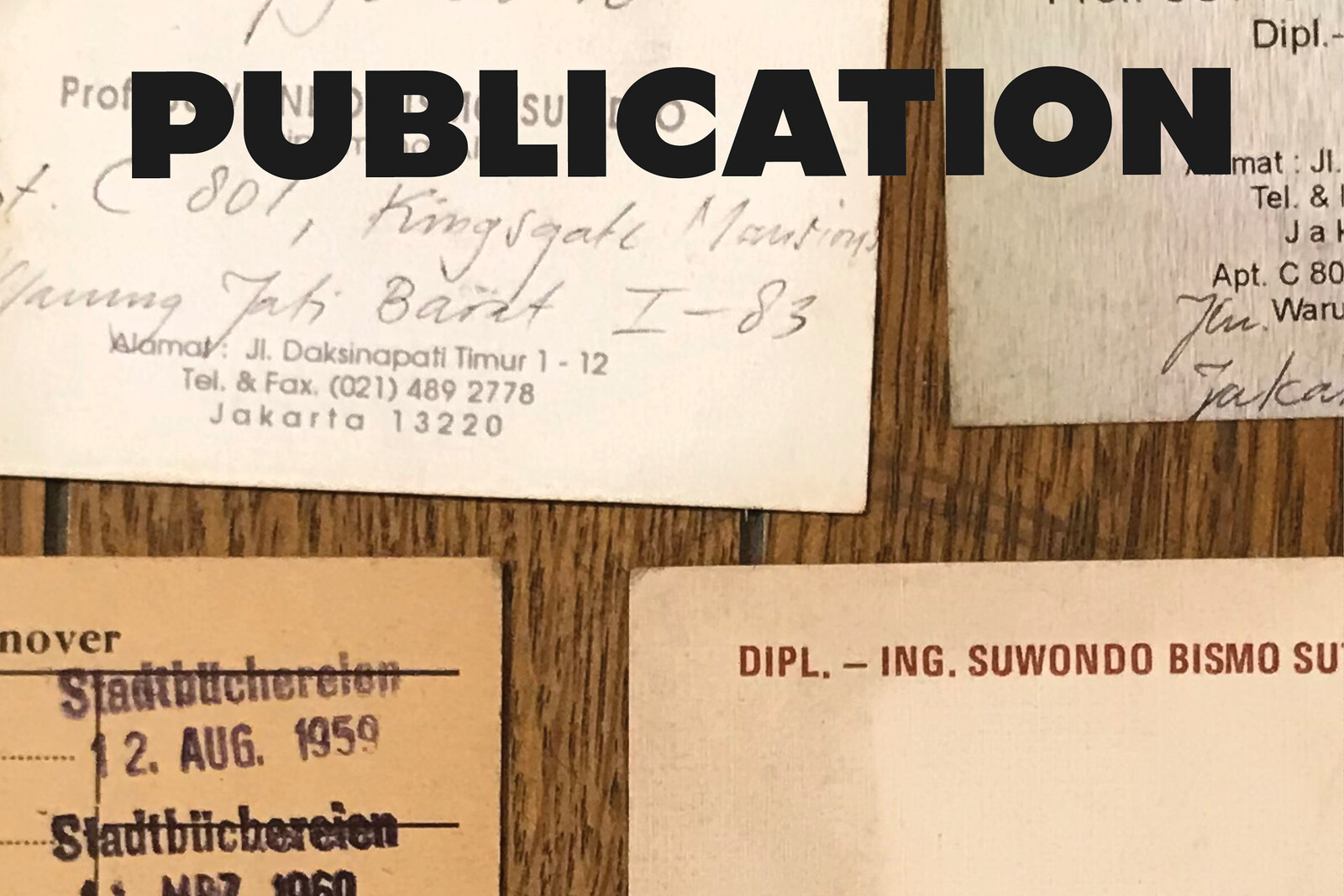Exhibition, symposia, publication
December 1, 2022–January 12, 2023
As part of the programme Encounters with Southeast Asian Modernism the project Dipl.-Ing. Arsitek: German-trained Indonesian Architects from the 1960s illuminates the lives and work of Indonesians who studied in Germany and graduated in the 1960s with the degree of Diplom-Ingenieur (Dipl.-Ing.) in architecture. After graduation, many of the newly trained architects returned home and became protagonists of modern Indonesian architecture. Some of them, however, remained in Europe, settling in Germany, Switzerland, or the Netherlands.
Jointly curated by a German-Indonesian team, Dipl.-Ing. Arsitek: German-trained Indonesian Architects from the 1960s sheds light on a yet little-known chapter of Indonesian-German architectural history—with an exhibition in Jakarta, two online symposia, and a publication (December 2022 by DOM Publishers).
Dipl.-Ing. Arsitek: German-trained Indonesian Architects from the 1960s contributes to the current discourse on Southeast Asian modernism and enhances it by addressing relations between Indonesia and Germany in the field of education and tracing the work of outstanding Indonesian architects up to the 1990s. This is the first time that attention has been drawn to the achievements and concepts of the selected architects in the context of their studies in Germany. A closer look at their final projects shows that both knowledge transfer and migration history are important aspects to consider as part of the broader discourse. Launched on the 70th anniversary of German-Indonesian diplomatic relations, this project exemplifies mutual cultural appreciation and the positive force that can be achieved through academic and cultural exchange.
You are cordially invited to the first online symposium: Between past and future—new forms of design, construction, and material cultures.
The 1950s and early 1960s—in the midst of the German “economic miracle” when the Indonesian students featured in Dipl.-Ing. Arsitek were studying architecture in Berlin—were characterized by a belief in the promises of modernity: technological progress, growth, prosperity, and a better life for all in a world of endless resources.
Today, 50 years after the Club of Rome’s groundbreaking report, The Limits to Growth, the realization seems to have taken hold that technological progress does not necessarily lead to a better life for all and that our planet’s resources are finite. Furthermore, the construction sector is responsible for almost 40% of harmful CO2 emissions worldwide. This raises a number of questions, some of which we would like to address in this symposium:
Which construction methods and material concepts can point the way to a more sustainable future today? Which design strategies do we need to use and reuse existing buildings—and thus our architectural heritage? What benefits can digitization offer in this context? And how can we combine different approaches and experiences?
Moderation:
Johannes Widodo, National University of Singapore & mAAN (modern Asian Architecture Network)
Contributions by:
–Imma Anindyta-Hermawan and Dani Hermawan, Formologix Lab
–Nanni Grau, HM Hochschule München University of Applied Sciences; Hütten & Paläste Architects, Berlin, Germany
–Philipp Misselwitz, executive director of Bauhaus Earth; Chair, Habitat Unit at the Institute of Architecture, Technische Universität Berlin
–Nadia Purwestri, executive director Pusat Dokumentasi Arsitektur PDA (Indonesian Centre for Architecture Documentation)
–Alwi R. Sjaaf, architect, urban observer, and PhD candidate in Urban Sociology, Universitas Indonesia
–Mohammad Nanda Widyarta, Department of Architecture, Universitas Indonesia; PhD candidate at the University of New South Wales, Australia
The online symposium will be held in English via Zoom. Please register here.
Artistic direction: Avianti Armand, Sally Below, Moritz Henning, Eduard Kögel, Setiadi Sopandi
The project is funded by the German Federal Foreign Office on the occasion of the 70th anniversary of diplomatic relations between the Federal Republic of Germany and the Republic of Indonesia.
Supporters:
PT. Estica International (authorized distributor of Schuco, Technal, Vento) / PT. Romulo Nusantara Perkasa (sole distributor of Keim)
Partners:
Technische Universität Berlin / Technische Universität Berlin, Architekturmuseum / Goethe Institute Jakarta






